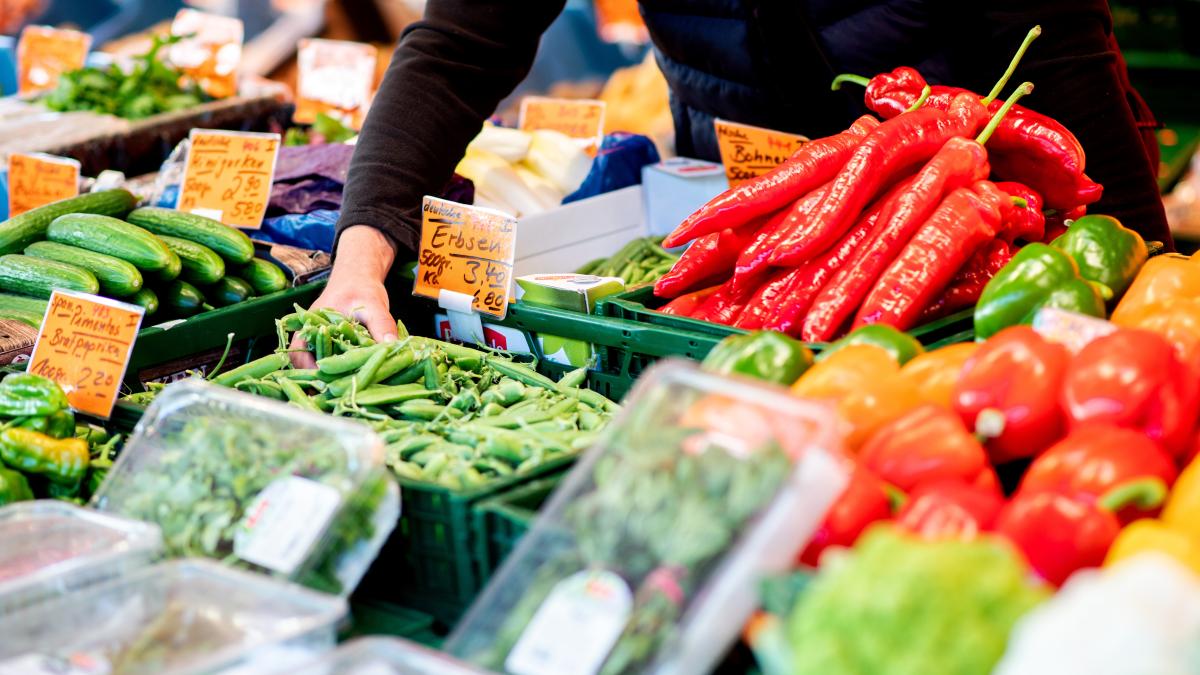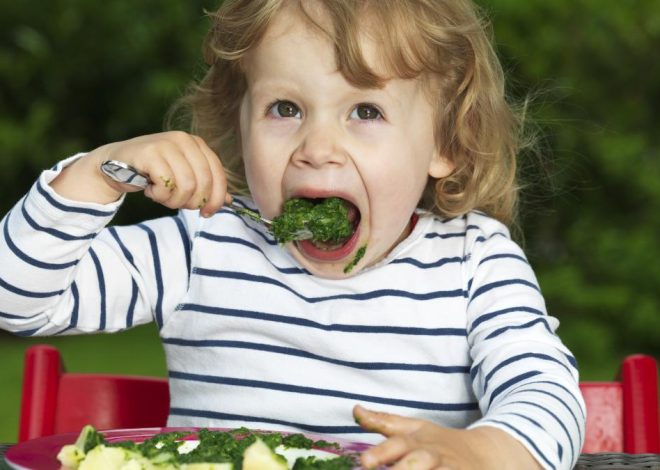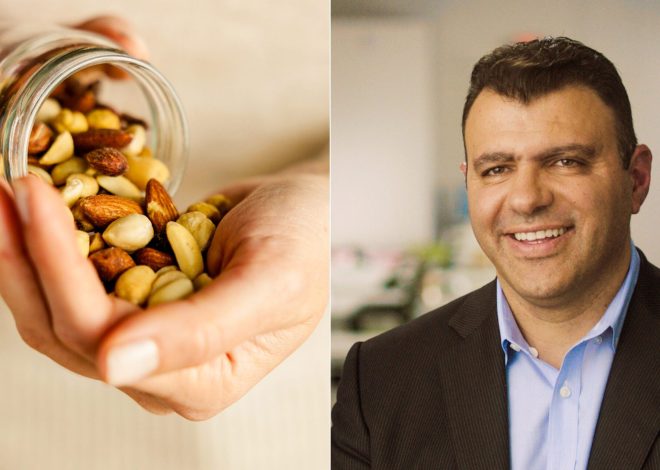
With this diet it finally works
“From now on I’ll only eat healthy.” Who hasn’t stood on the scales and made this promise to themselves? But how do you implement this correctly?
Lose weight is not easy. There are thousands of crash diets that promise weight loss in no time. The problem: This is often not sustainable. It is much more important to change your diet sustainably so that you can stick to it in the long term. We explain how this works here.
What body weight is actually healthy?
Before you decide to lose weight, it is important to clarify what body weight is normal. According to AOK, the most reliable measurement for this is the body mass index (BMI). This indicates the ratio of body weight to height. The BMI is calculated using the formula: body weight in kg / (height in m)². If you don’t want to do the math yourself, you can also find numerous reliable BMI calculators on the Internet, for example on health insurance websites.
The number that comes out of the calculation shows whether you are at normal weight or not. Is the BMI
- If you are 18.9 or less, you are underweight. So you should definitely not lose any more weight.
- Between 18.6 and 25, you have a normal weight. Even then there is another one Lose weight not required.
- Between 25.1 and 30, you are slightly overweight. According to the AOK Such a weight is not a medical concern, as long as the blood values and blood pressure are in order. However, you should be careful not to gain any more weight. Losing weight to get into the normal range doesn’t hurt.
- over 30, you are very overweight. From this point on, losing weight is beneficial for your health, because being very overweight also comes with a high risk of high blood pressure, diabetes or strokes.
We need your consent to display Glomex’s video
With your consent, external content can be displayed here that supplements the editorial text. By activating the content via “Accept and display”, glomex GmbH can store or access information on your device and collect and process your personal data, even in countries outside the EU with a lower level of data protection, to which you expressly consent. The consent applies to your current page visit, but you can withdraw it using the slider. Data protection
Video: SAT.1
How do I finally manage to lose weight in the long term?
If you want to lose weight in the long term, you need patience. That’s why the AOK recommends staying away from diets such as low carb, Atkins or Paleo. With these you would lose weight quickly, but also gain it back quickly. You often even weigh more afterwards than before the diet. This effect is known as the yo-yo effect.
In order to lose weight sustainably, you should change your diet in the long term. But not everyone knows how to eat healthy and wholesome foods. The German Society for Nutrition (DGE) has therefore drawn up ten rules that help with changing your diet.
- Eat varied: The more varied the food, the higher the chance of getting all the necessary nutrients. You can make a colorful selection from the seven food groups (cereal products or potatoes, vegetables and salad, fruit, dairy products, meat, fish and eggs, oils and fats, etc.). beverages), a fully-fledged one succeeds Nutrition very easy. Vegetable Groceries provide many nutrients, fiber and secondary plant substances. At the same time they have few calories. Although vegetable oils and nuts are high in calories, they are valuable sources of nutrients. Vegetable Groceries should therefore be the main component of the Nutrition Animal Groceries should only supplement these.
- Five fruits and vegetables a day: According to the GDE, regular consumption of fruit and vegetables reduces the risk of cardiovascular diseases. That’s why the experts recommend three portions of vegetables and two portions of fruit a day.
- Whole grain instead of white flour: Groceries Whole grain foods keep you full longer than white flour products and are richer in nutrients. This makes whole grain products a better source of carbohydrates.
- Animalistic Groceries in moderation: For bone health, you should consume dairy products every day. Fish also offers many healthy nutrients: Fatty fish such as salmon contains long-chain omega-3 fatty acids, sea fish such as cod is rich in iodine. That’s why you should eat fish once or twice a week. However, meat and sausage should be eaten as rarely as possible. Red meat and sausage in particular should be enjoyed in moderation as they increase the risk of colon cancer.
- Good fats are important: Vegetable oils contain a lot of calories, but also essential fatty acids Vitamin E. Unsaturated fatty acids have a positive effect on health. They are found in vegetable oils, margarine, nuts and fatty fish. Especially recommends this DGE the use of rapeseed oil.
- Less sugar and salt: Processed, sugary ones Groceries and beverages contain unnecessary calories and lead to tooth decay. Too much salt is also unhealthy. It shouldn’t be more than 6 g per day.
- Drink plenty of water: To really quench your thirst, you should drink water and unsweetened teas. Even unsweetened coffee is not unhealthy in moderation. Sugary beverages If possible, you shouldn’t drink it at all. Light drinks are also not recommended as they contain many additives. Alcohol also contains a lot of calories and can lead to some diseases, such as fatty liver disease.
- Gentle preparation: Groceries should be cooked as briefly as possible and for as long as necessary. The less water and the less fat is used, the more nutrients are retained. Such preparation works best in a steamer or when steaming. Animalistic Groceries but should be cooked sufficiently. Black areas that appear when frying, baking or grilling should not be eaten. They may contain carcinogenic substances.
- Eat mindfully: Eating slowly, consciously and chewing thoroughly promotes the feeling of satiety. This occurs after 15 to 20 minutes. If you’re too fast, you might not even notice this.
- To keep moving: Even if you don’t want to run to the gym every day, physical activity is important. You should therefore get 30 to 60 minutes of moderate exercise per day, for example by going for a walk or Bicycle moves. At the Lose weight This helps because it stimulates muscle building and increases calorie consumption.
How long does it take to lose weight by changing your diet?
The most important thing when losing weight is: you have to take your time. Kilos that you have accumulated over the years do not disappear overnight. According to the Techniker Krankenkasse, you can lose around half a kilo per week with a sustainable change in diet. However, weight loss is not linear. So if you gain a few kilos again or are stuck at one weight forever, you shouldn’t throw in the towel straight away, but keep trying until this phase is overcome.

Ethel Purdy – Medical Blogger & Pharmacist
Bridging the world of wellness and science, Ethel Purdy is a professional voice in healthcare with a passion for sharing knowledge. At 36, she stands at the confluence of medical expertise and the written word, holding a pharmacy degree acquired under the rigorous education systems of Germany and Estonia.
Her pursuit of medicine was fueled by a desire to understand the intricacies of human health and to contribute to the community’s understanding of it. Transitioning seamlessly into the realm of blogging, Ethel has found a platform to demystify complex medical concepts for the everyday reader.
Ethel’s commitment to the world of medicine extends beyond her professional life into a personal commitment to health and wellness. Her hobbies reflect this dedication, often involving research on the latest medical advances, participating in wellness communities, and exploring the vast and varied dimensions of health.
Join Ethel as she distills her pharmaceutical knowledge into accessible wisdom, fostering an environment where science meets lifestyle and everyone is invited to learn. Whether you’re looking for insights into the latest health trends or trustworthy medical advice, Ethel’s blog is your gateway to the nexus of healthcare and daily living.



